
Ruaha National Park: Tanzania's Hidden Safari Gem
Ruaha National Park is a hidden jewel in Tanzania's vast wilderness. Covering an area of about 20,226 square kilometers, it is the largest national park in Tanzania. This expansive park offers an authentic safari experience, far from the crowds found in other popular African destinations. Visitors can witness an incredible array of wildlife, including elephants, lions, leopards, and even rare species like the African wild dog. The Great Ruaha River, which flows through the park, attracts many animals and is an excellent spot for game viewing. The landscape of Ruaha is diverse, featuring rolling hills, open plains, and dense woodlands. The park is also a birdwatcher's paradise, with over 570 species of birds, making it one of the most diverse bird habitats in East Africa. Whether you're an avid birdwatcher or a first-time safari-goer, the sight of colorful birdlife in such a stunning setting is truly captivating. Ruaha National Park remains relatively untouched and less commercialized, offering a more intimate connection with nature. It is also rich in cultural heritage, with the Hehe and Gogo tribes living in nearby areas. Visitors can learn about their way of life and traditions, adding a cultural dimension to their adventure. The park is accessible via flights from Dar es Salaam or Arusha, followed by a drive, making it a perfect addition to any Tanzanian itinerary.
Local tips in Ruaha National Park
- Visit during the dry season (June to October) for the best wildlife viewing as animals gather around water sources.
- Bring binoculars and a good camera to capture the park's diverse birdlife and stunning landscapes.
- Book a guided walking safari for a unique opportunity to explore the park on foot and see smaller flora and fauna.
- Stay in one of the park's lodges or tented camps to fully immerse yourself in the safari experience.
- Don't forget to pack insect repellent and sunscreen to protect yourself from the elements.
Ruaha National Park: Tanzania's Hidden Safari Gem
Ruaha National Park is a hidden jewel in Tanzania's vast wilderness. Covering an area of about 20,226 square kilometers, it is the largest national park in Tanzania. This expansive park offers an authentic safari experience, far from the crowds found in other popular African destinations. Visitors can witness an incredible array of wildlife, including elephants, lions, leopards, and even rare species like the African wild dog. The Great Ruaha River, which flows through the park, attracts many animals and is an excellent spot for game viewing. The landscape of Ruaha is diverse, featuring rolling hills, open plains, and dense woodlands. The park is also a birdwatcher's paradise, with over 570 species of birds, making it one of the most diverse bird habitats in East Africa. Whether you're an avid birdwatcher or a first-time safari-goer, the sight of colorful birdlife in such a stunning setting is truly captivating. Ruaha National Park remains relatively untouched and less commercialized, offering a more intimate connection with nature. It is also rich in cultural heritage, with the Hehe and Gogo tribes living in nearby areas. Visitors can learn about their way of life and traditions, adding a cultural dimension to their adventure. The park is accessible via flights from Dar es Salaam or Arusha, followed by a drive, making it a perfect addition to any Tanzanian itinerary.
When is the best time to go to Ruaha National Park?
Iconic landmarks you can’t miss
Mikumi National Park
Explore the wildlife and scenic beauty of Mikumi National Park, a premier destination for adventure lovers in Tanzania.
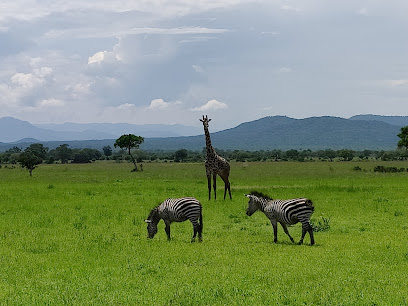
Serengeti National Park
Experience the unparalleled beauty and wildlife of Serengeti National Park, a UNESCO World Heritage Site, perfect for unforgettable safari adventures.
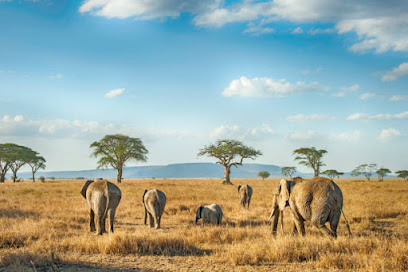
Ngorongoro Conservation Area
Discover the breathtaking landscapes and rich wildlife of Ngorongoro Conservation Area, a UNESCO World Heritage Site in Tanzania.
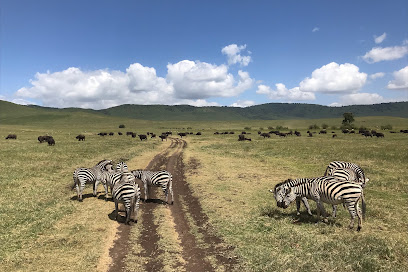
Tarangire National Park
Explore Tarangire National Park, Tanzania's wildlife haven, featuring stunning landscapes, diverse ecosystems, and unforgettable safari experiences.
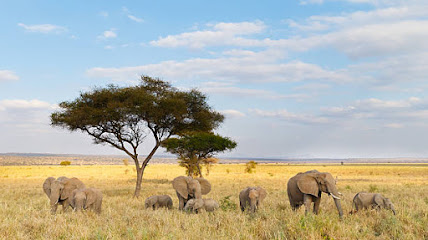
Lake Manyara National Park
Discover the captivating beauty of Lake Manyara National Park, a wildlife haven with diverse ecosystems and breathtaking landscapes in Tanzania.
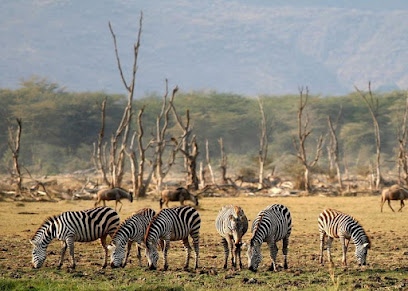
Udzungwa Mountains National Park
Explore the breathtaking landscapes and rich biodiversity of Udzungwa Mountains National Park, a unique gem of Tanzania's natural heritage.
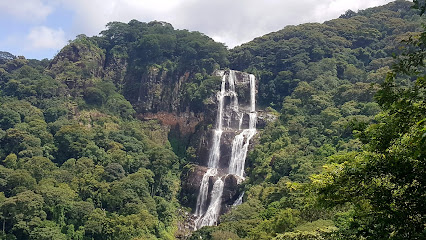
Arusha National Park
Explore Arusha National Park, Tanzania's stunning national park filled with diverse wildlife, breathtaking landscapes, and unforgettable adventures.
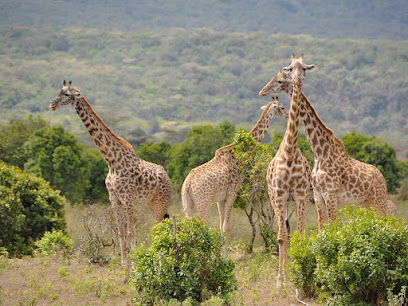
Mbudya Marine Reserve
Explore the breathtaking Mbudya Marine Reserve, a tropical paradise with stunning beaches, vibrant marine life, and adventure activities near Dar es Salaam.
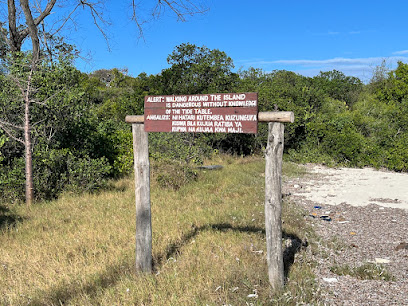
Selous Mapumziko Lodge
Experience luxury and adventure at Selous Mapumziko Lodge, where nature meets comfort in the heart of Tanzania's Selous Game Reserve.

Saanane National Park
Discover Saanane National Park, a breathtaking national park in Tanzania, where wildlife encounters and stunning landscapes await every traveler.
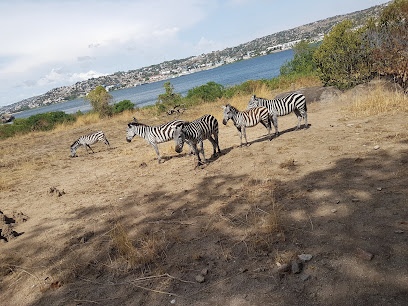
Katavi National Park
Explore the breathtaking landscapes and abundant wildlife of Katavi National Park, a hidden treasure in Tanzania's wilderness.
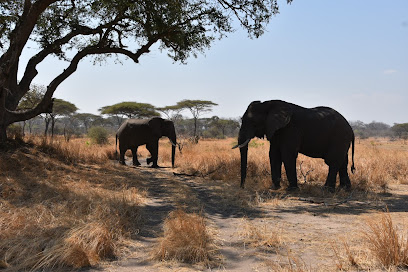
Iringa Boma
Discover the fascinating history and culture of Tanzania at Iringa Boma Museum, a must-visit destination for every traveler.
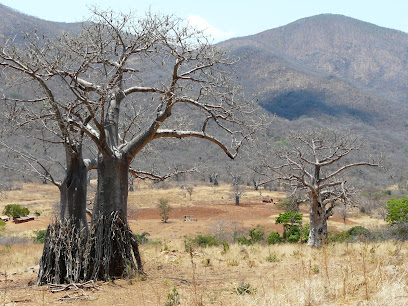
Kitulo National Park
Explore the stunning wildflower landscapes and diverse wildlife of Kitulo National Park, a hidden gem in Tanzania's southern highlands.
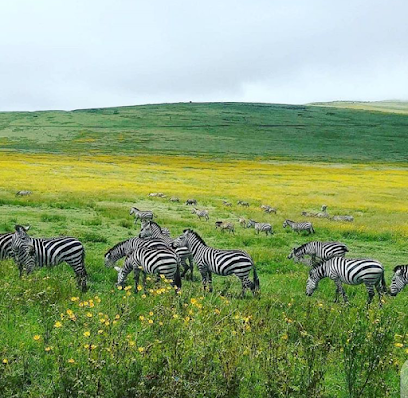
Isimila stone Age site
Discover the ancient wonders of Isimila Stone Age site in Tanzania, where history and natural beauty come together in a captivating experience.
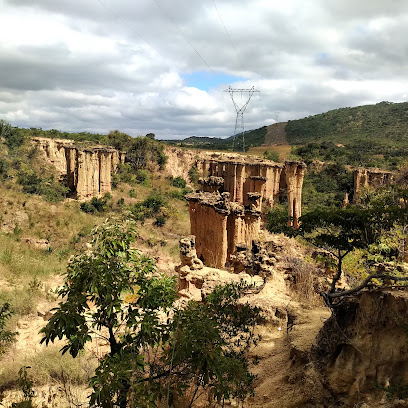
Nyerere National Park
Experience the captivating wildlife and stunning landscapes of Nyerere National Park, a true sanctuary of nature in Tanzania's wilderness.
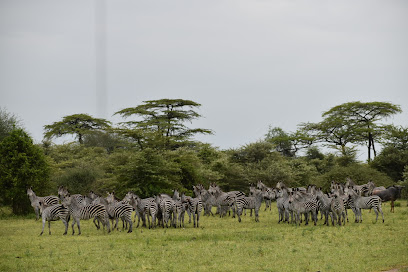
Unmissable attractions to see
Mikumi National Park
Explore the rich wildlife and breathtaking landscapes of Mikumi National Park, a premier destination for nature lovers in Tanzania.
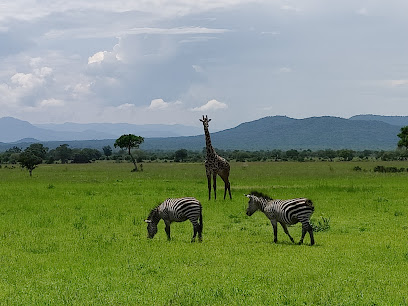
Ngorongoro Conservation Area
Discover the stunning landscapes and wildlife of Ngorongoro Conservation Area, a UNESCO World Heritage site rich in natural beauty and cultural heritage.
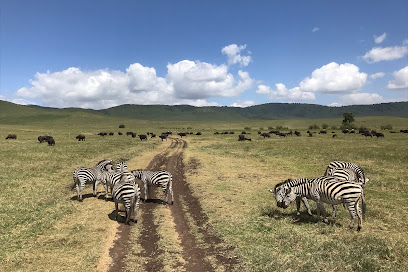
Lake Manyara National Park
Explore Lake Manyara National Park, a breathtaking Tanzanian destination filled with diverse wildlife, stunning landscapes, and thrilling adventures.
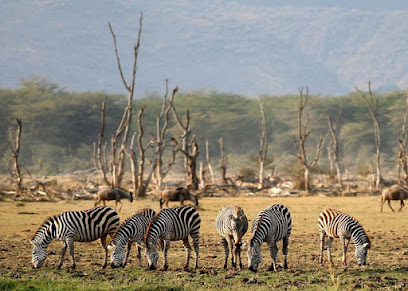
Udzungwa Mountains National Park
Discover the breathtaking beauty of Udzungwa Mountains National Park, a hidden gem in Tanzania known for its rich biodiversity and stunning landscapes.
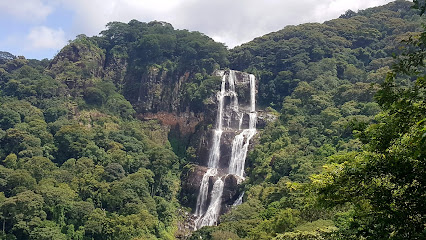
Arusha National Park
Experience the breathtaking landscapes and diverse wildlife of Arusha National Park, a true gem in Tanzania's natural wonders.
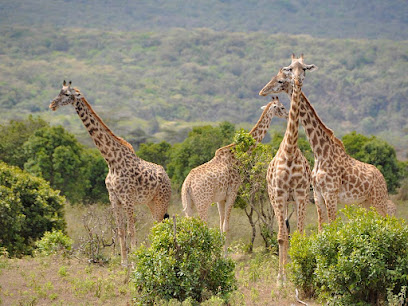
Mbudya Marine Reserve
Explore Mbudya Marine Reserve: A tranquil paradise of sandy beaches and vibrant marine life near Dar es Salaam.
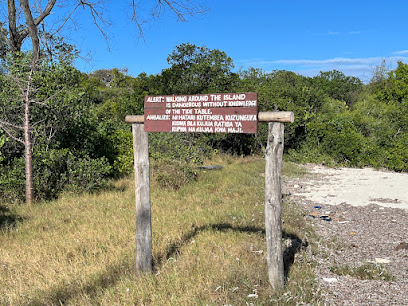
Selous Mapumziko Lodge
Discover the luxury of Selous Mapumziko Lodge in Tanzania's Selous Game Reserve, where adventure meets tranquility in a stunning natural landscape.

Saanane National Park
Experience the enchanting wildlife and stunning landscapes of Saanane National Park, a true treasure in the heart of Tanzania.
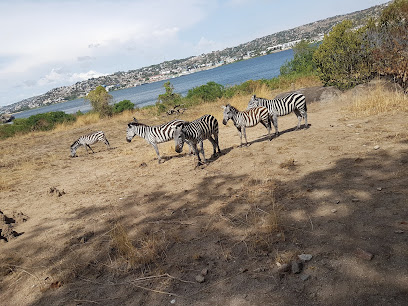
Iringa Boma
Explore the rich history and cultural heritage of Tanzania at Iringa Boma, a captivating museum in the heart of Iringa, showcasing local traditions and artifacts.
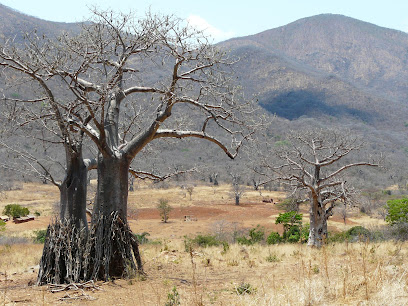
Kitulo National Park
Explore the untouched beauty of Kitulo National Park, where vibrant wildflowers bloom and diverse wildlife thrives in Tanzania's breathtaking landscapes.
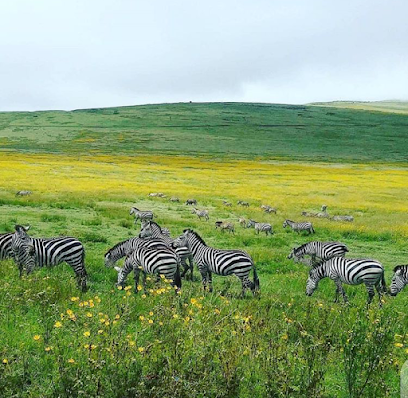
Pande Game Reserve
Discover Pande Game Reserve, a stunning park near Dar es Salaam, teeming with wildlife and lush landscapes for an unforgettable nature experience in Tanzania.
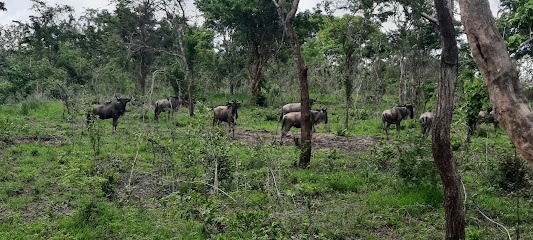
Nyerere National Park ( Selous Game Reserve )
Discover the breathtaking landscapes and diverse wildlife of Nyerere National Park, Tanzania's hidden gem for nature lovers and adventure seekers.
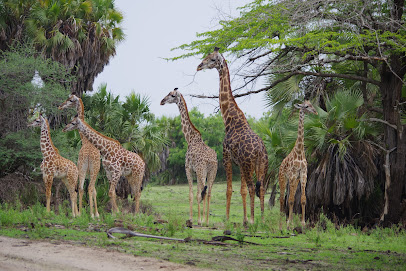
Isimila stone Age site
Explore the ancient Isimila Stone Age site, a UNESCO World Heritage site in Tanzania, and uncover the secrets of early human civilization amidst breathtaking landscapes.
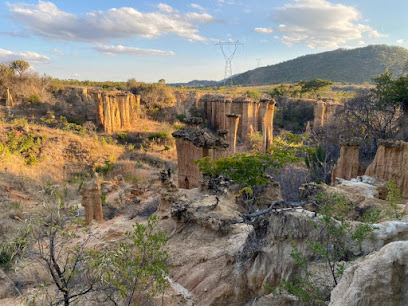
Kipengere Mpanga Game Reserve
Explore Kipengere Mpanga Game Reserve, Tanzania – A serene nature preserve filled with stunning landscapes, diverse wildlife, and rich history.
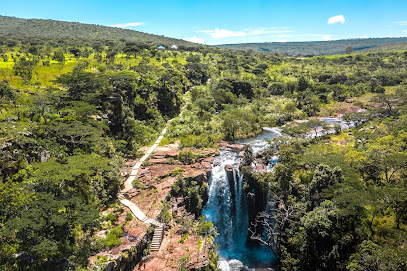
Mahale Mountains National Park
Explore the breathtaking Mahale Mountains National Park, a sanctuary for chimpanzees and a paradise for nature lovers in Tanzania.
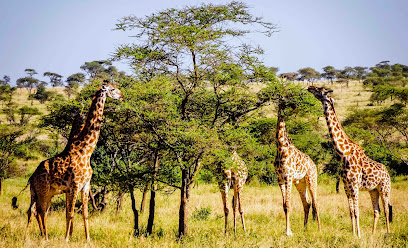
Essential places to dine
Samaki Samaki restaurant
Discover exquisite seafood at Samaki Samaki in Dar es Salaam – where Tanzanian flavors meet warm hospitality.
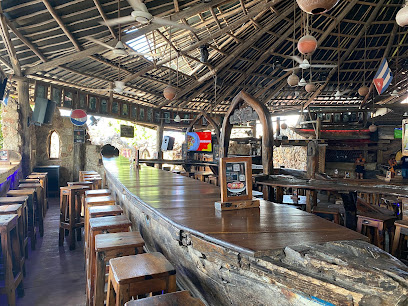
Karambezi Cafe
Experience coastal dining at Karambezi Cafe in Dar es Salaam – where stunning views meet delectable cuisine in an inviting atmosphere.
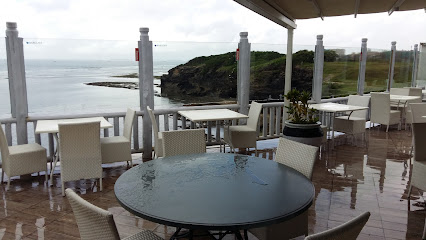
Chowpatty Restaurant
Discover delicious vegetarian delights at Chowpatty Restaurant in Dar es Salaam - where local flavors meet culinary creativity.
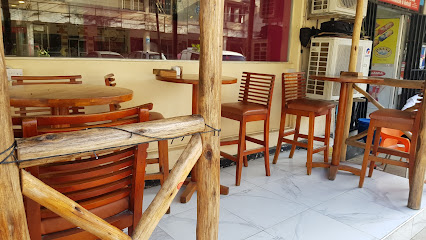
Akemi Revolving Restaurant
Experience exquisite cuisine and breathtaking views at Akemi Revolving Restaurant in Dar es Salaam.
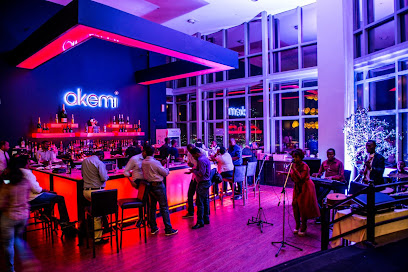
The Waterfront
Experience exquisite dining at The Waterfront in Dar es Salaam with stunning ocean views and a menu celebrating local and international cuisine.
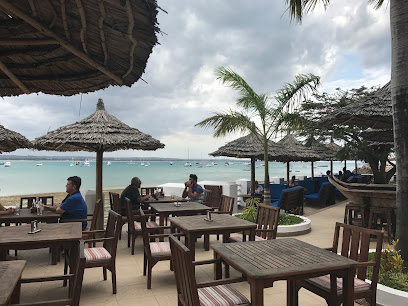
Mama Iringa
Experience authentic Tanzanian cuisine at Mama Iringa in Iringa – where every dish tells a story.
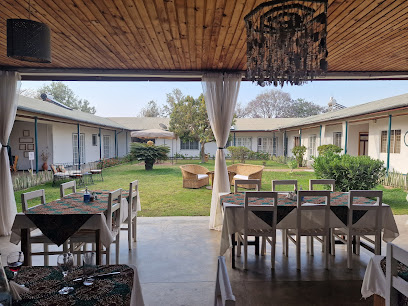
Badolina Secret Garden Restaurant
Experience authentic Zanzibari flavors at Badolina Secret Garden Restaurant amidst lush gardens in Nungwi.
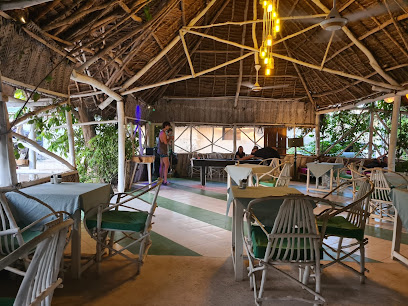
Ngalawa Surf & Turf
Experience unparalleled seafood dining with stunning ocean views at Ngalawa Surf & Turf in Dar es Salaam.
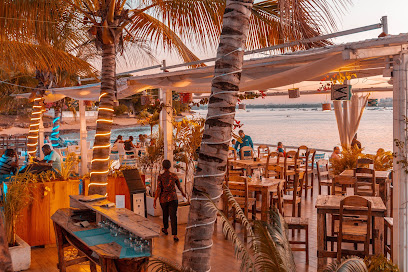
Rohobot Ethiopian Restaurant
Discover the authentic taste of Ethiopia at Rohobot Restaurant in Dar es Salaam – where tradition meets flavor.
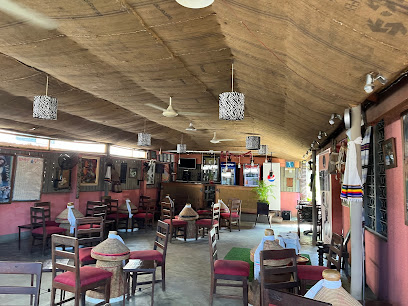
Pizza Mamma Mia
Experience authentic Italian cuisine amidst breathtaking landscapes at Pizza Mamma Mia in Lushoto – a must-visit destination for every food lover.
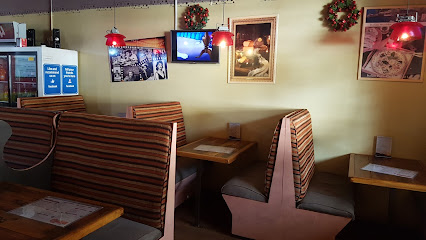
Poa Poa Pestaurant
Experience authentic Tanzanian cuisine at Poa Poa Pestaurant in Bagamoyo - where flavorful dishes meet vibrant culture.
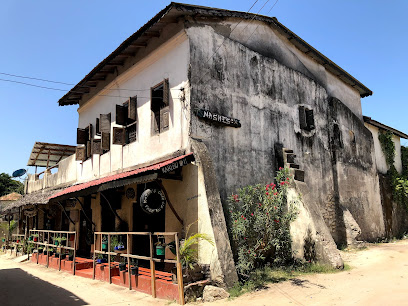
THE KITCHEN CAFE
Discover delectable Tanzanian and international cuisine at The Kitchen Cafe in Tanga - where every meal is an experience.
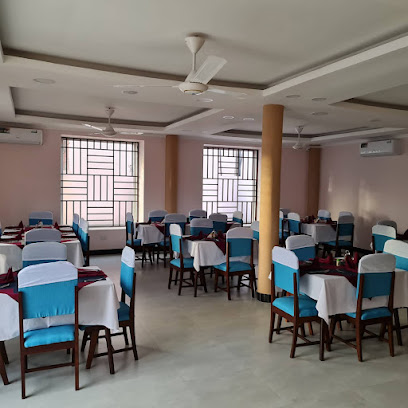
Themi Living Garden
Experience the serenity of Themi Living Garden: A vegetarian haven in Arusha National Park offering fresh dishes amidst stunning natural beauty.
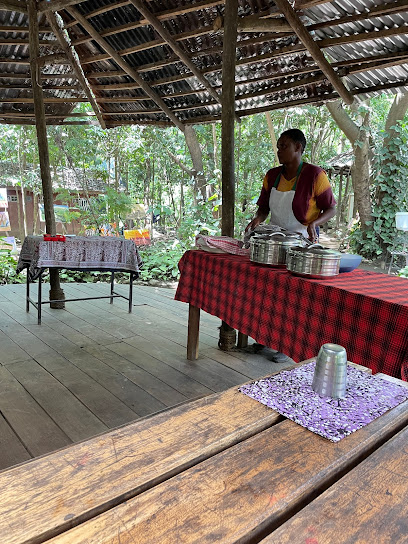
Cafe Kabisa
Discover delicious coffee and delightful local cuisine at Cafe Kabisa in Mto Wa Mbu – your perfect stop for relaxation and culture.
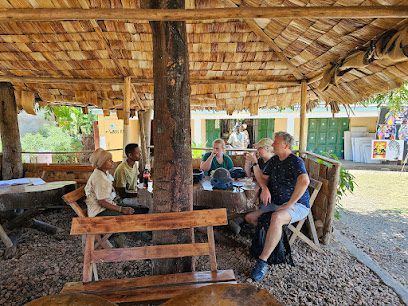
Ruaha National Park INGRESSO
Explore the breathtaking wilderness of Ruaha National Park – a hidden gem in Tanzania teeming with wildlife adventures.
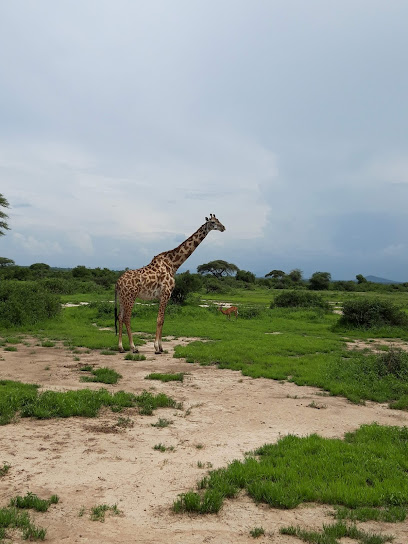
Markets, malls and hidden boutiques
African Galleria
Explore the vibrant African Galleria in Usangi, a premier destination for authentic Tanzanian souvenirs and cultural treasures.
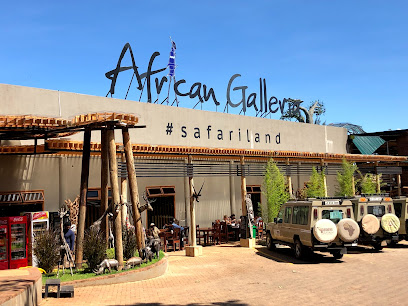
Ruaha National Park INGRESSO
Experience the stunning wildlife and breathtaking landscapes of Ruaha National Park, Tanzania's hidden gem for nature lovers and adventure seekers.
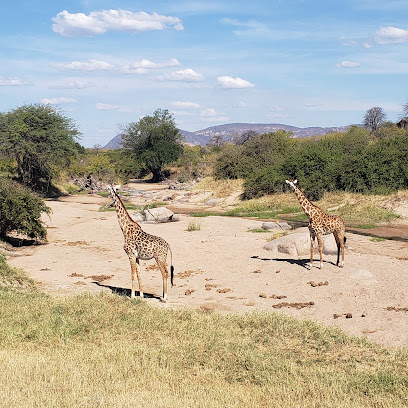
RUAHA NATIONAL PARK
Discover the untamed beauty of Ruaha National Park, Tanzania's largest wilderness area, home to incredible wildlife and stunning scenery.
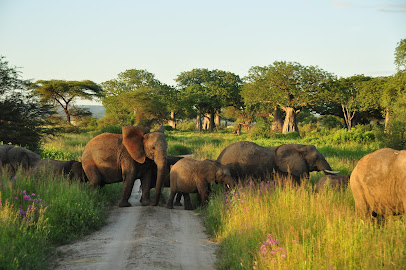
Maasai Market Curios and Crafts
Explore the colorful Maasai Market Curios and Crafts in Arusha for unique handcrafted souvenirs and an authentic Tanzanian cultural experience.
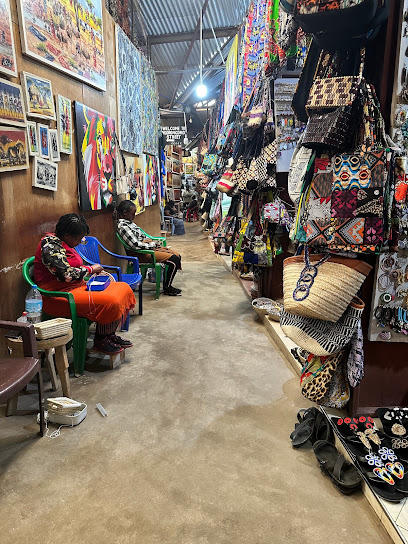
Great Ruaha River
Experience the breathtaking beauty and wildlife of the Great Ruaha River in Tanzania, a must-visit destination for nature lovers and adventure seekers.
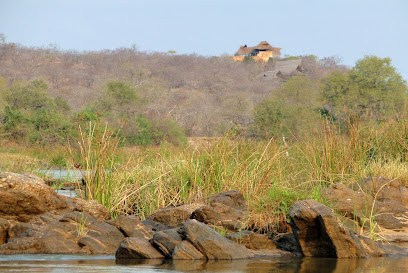
Ruaha National Park
Discover the breathtaking landscapes and diverse wildlife of Ruaha National Park, Tanzania's largest national park, perfect for nature lovers and adventurers.
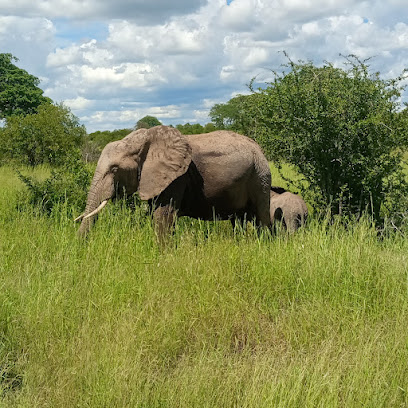
HAKUNA MATAYA Gallery Shop
Explore HAKUNA MATAYA Gallery Shop for authentic Tanzanian souvenirs and crafts, celebrating local artistry in the heart of Karatu.
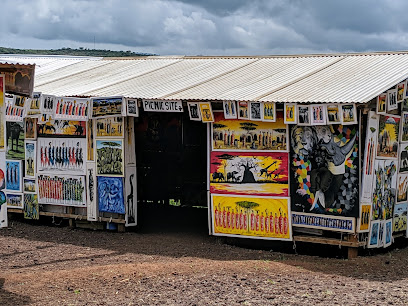
Ruaha Safari Company
Explore the breathtaking wildlife and stunning landscapes at Ruaha Safari Company, a premier adventure destination in Tanzania's Ruaha National Park.
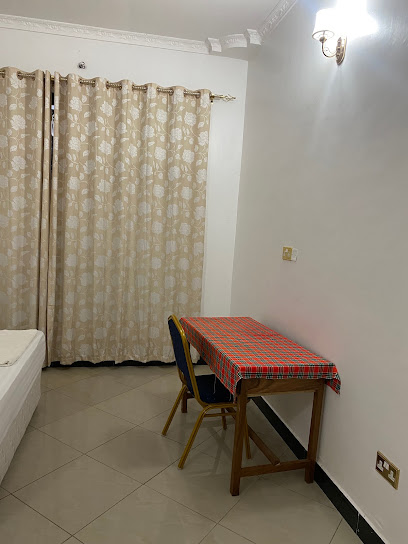
Rafiki Souvenir shop
Explore the vibrant culture of Tanzania at Rafiki Souvenir Shop, your go-to destination for unique handmade crafts and memorable keepsakes.
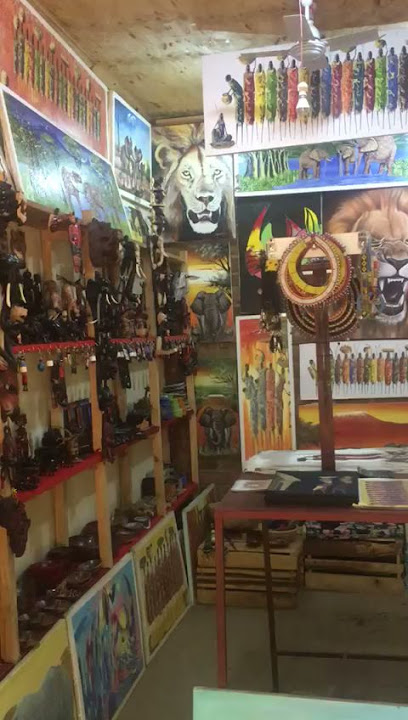
Ruhanga Center
Experience the vibrant local culture and diverse shopping offerings at Ruhanga Center in the heart of Kamachumu, Tanzania.
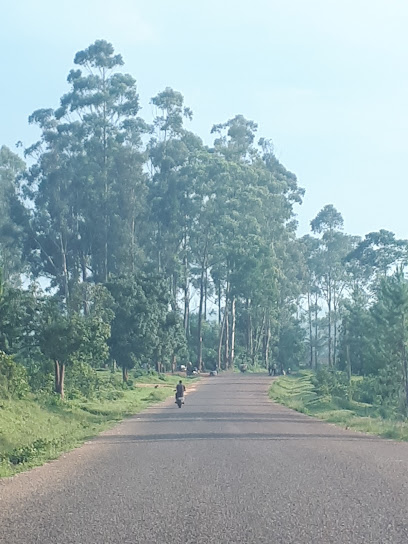
Great Ruaha Marathon(GRUMA)
Experience the thrill of the Great Ruaha Marathon while exploring Tanzania's breathtaking landscapes and rich wildlife diversity.

NIA Hand Crafts
Discover authentic Tanzanian souvenirs at NIA Hand Crafts, where local artistry meets vibrant culture in the heart of Dar es Salaam.
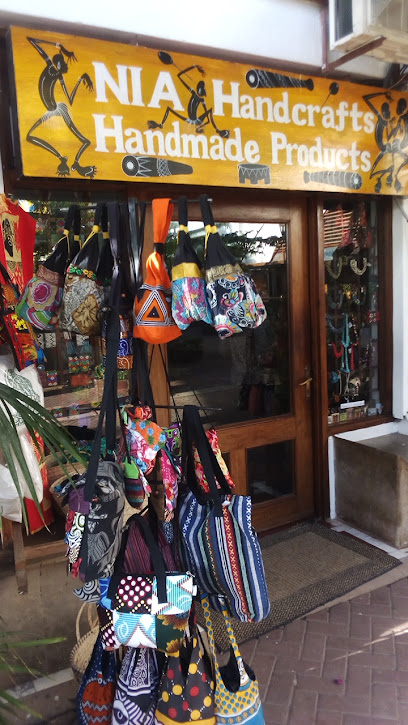
Hilali Ruhundwa
Explore unique home goods at Hilali Ruhundwa, a charming store in Nakatunga that showcases the rich culture and craftsmanship of Tanzania.
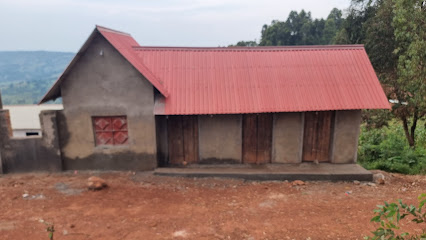
Rinah's World of Culture and Arts
Explore creativity and culture at Rinah's World of Culture and Arts, a unique scrapbooking haven in the heart of Arusha, Tanzania.

Aniceth Shop (UmojaAmgaragalo)
Discover the vibrant shopping experience at Aniceth Shop in Chamtonya, where local culture, cuisine, and crafts come alive.

Essential bars & hidden hideouts
Havoc Nightspot
Discover the ultimate nightlife experience at Havoc Nightspot, Dar es Salaam's premier cocktail bar and entertainment hub, blending dining, dancing, and gaming.
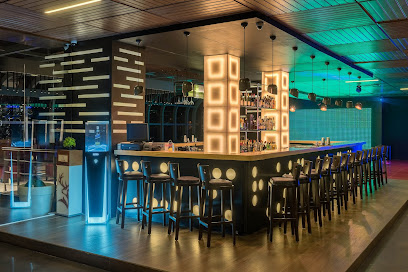
Picnic Bar
Experience the vibrant flavors of Arusha at Picnic Bar, where delicious grilled cuisine meets a lively atmosphere in Tanzania's breathtaking landscape.
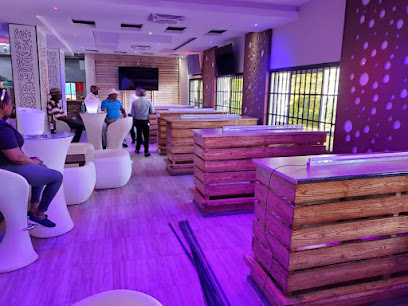
The Slow Leopard
Experience the vibrant culture of Dar es Salaam at The Slow Leopard, your go-to hostel, bar, and restaurant for relaxation and local flavors.

Kajibange BAR & Guest House
Discover the tranquil charm of Kajibange BAR & Guest House, a perfect retreat on Zanzibar's stunning Nungwi coast, where relaxation meets vibrant local culture.
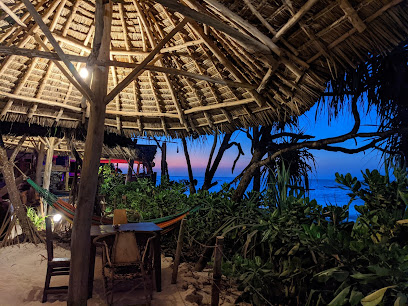
Mikumi Lounge
Experience the vibrant nightlife of Temeke at Mikumi Lounge, where local culture meets modern comfort in an unforgettable bar and nightclub setting.
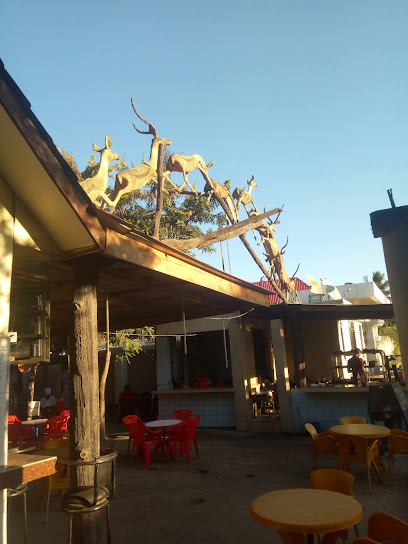
LALIGA PUB AND LODGE
Discover the heart of Dodoma's nightlife at LALIGA PUB AND LODGE, where culture, entertainment, and great company come together.
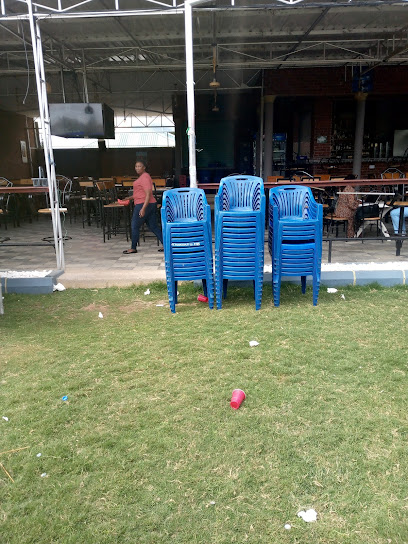
CHE Rock Bar & Restaurant
Experience the vibrant nightlife of Zanzibar at CHE Rock Bar & Restaurant, where delicious cuisine meets live rock music by the beach.
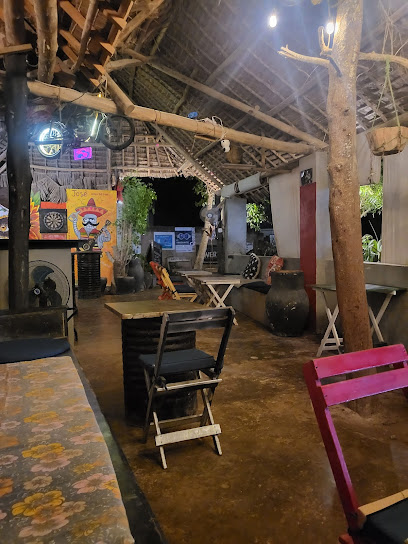
T.H.E B.A.R
Dive into the lively nightlife of Dar es Salaam at T.H.E B.A.R, where refreshing drinks and vibrant culture await every visitor.
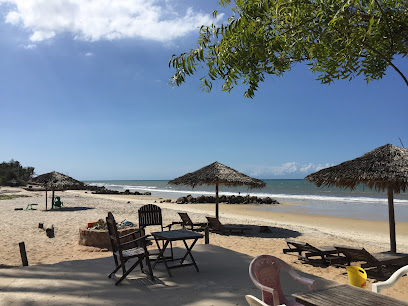
Royal Pub
Discover the lively Royal Pub in Ruangwa, where locals and tourists unite over drinks in a vibrant atmosphere.
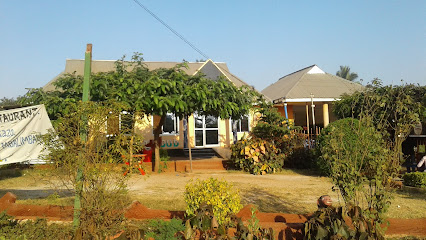
Great Ruaha River
Explore the Great Ruaha River, a stunning wildlife haven in Tanzania, offering breathtaking landscapes, thrilling safaris, and rich biodiversity.
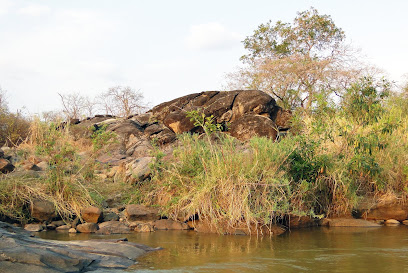
Ruaha River Lodge
Experience the wild heart of Tanzania at Ruaha River Lodge, your perfect base for unforgettable safaris and breathtaking natural beauty.
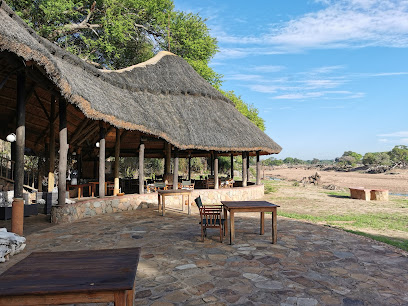
Wanyacha Bar
Experience the vibrant nightlife at Wanyacha Bar in Mugumu, where locals and tourists unite over drinks and culture in a lively atmosphere.
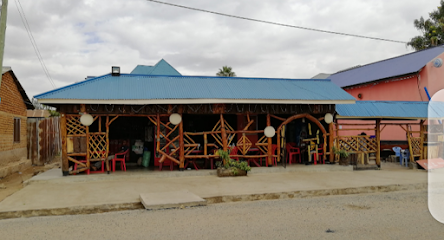
Ngauti Park Goba
Discover the vibrant energy of Ngauti Park Goba, a lively bar in Dar es Salaam perfect for unwinding and enjoying local culture.
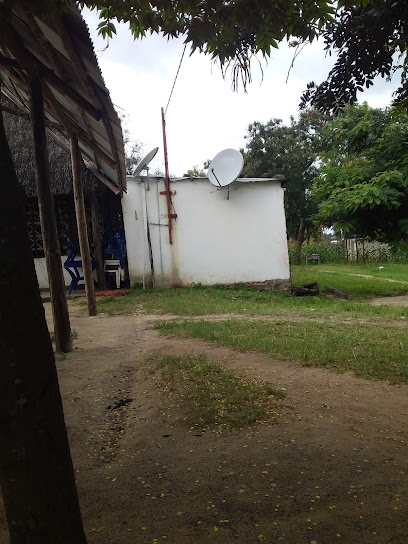
Nyangarika Home Ground Pub & Lounge
Discover the lively Nyangarika Home Ground Pub & Lounge in Dar es Salaam—where vibrant nightlife meets delicious Tanzanian flavors.

Local Phrases about Ruaha National Park
-
- HelloJambo
[jahm-boh] - GoodbyeKwaheri
[kwah-heh-ree] - YesNdiyo
[n-dee-yoh] - NoHapana
[hah-pah-nah] - Please/You're welcomeTafadhali
[tah-fah-dah-lee] - Thank youAsante
[ah-sahn-teh] - Excuse me/SorrySamahani
[sah-mah-hah-nee] - How are you?Habari yako?
[hah-bah-ree yah-koh] - Fine. And you?Salama. Na wewe?
[sah-lah-mah nah weh-weh] - Do you speak English?Unazungumza Kiingereza?
[oo-nah-zoon-goom-zah keen-geh-reh-zah] - I don't understandSielewi
[see-eh-leh-wee]
- HelloJambo
-
- I'd like to see the menu, pleaseNingependa kuona menyu, tafadhali
[nee-ngheh-pehn-dah kwoh-nah meh-nyoo, tah-fah-dah-lee] - I don't eat meatSili nyama
[see-lee nyah-mah] - Cheers!Kwa afya!
[kwah ahf-yah] - I would like to pay, pleaseNingependa kulipa, tafadhali
[nee-ngheh-pehn-dah koo-lee-pah, tah-fah-dah-lee]
- I'd like to see the menu, pleaseNingependa kuona menyu, tafadhali
-
- Help!Msaada!
[msah-ah-dah] - Go away!Ondoka!
[ohn-doh-kah] - Call the Police!Piga simu polisi!
[pee-gah see-moo poh-lee-see] - Call a doctor!Piga simu daktari!
[pee-gah see-moo dahk-tah-ree] - I'm lostNimepotea
[nee-meh-poh-teh-ah] - I'm illNinaumwa
[nee-nah-oom-wah]
- Help!Msaada!
-
- I'd like to buy...Ningependa kununua...
[nee-ngheh-pehn-dah koo-noo-noo-ah...] - I'm just lookingNinaangalia tu
[nee-nah-ahn-gah-lee-ah too] - How much is it?Ni bei gani?
[nee bay gah-nee] - That's too expensiveHiyo ni ghali sana
[hee-yoh nee gah-lee sah-nah] - Can you lower the price?Unaweza kushusha bei?
[oo-nah-weh-zah koo-shoo-shah bay]
- I'd like to buy...Ningependa kununua...
-
- What time is it?Saa ngapi?
[sah-ah ngah-pee] - It's one o'clockNi saa moja
[nee sah-ah moh-jah] - Half past (10)Nusu saa (kumi)
[noo-soo sah-ah (koo-mee)] - MorningAsubuhi
[ah-soo-boo-hee] - AfternoonMchana
[m-chah-nah] - EveningJioni
[joh-nee] - YesterdayJana
[jah-nah] - TodayLeo
[leh-oh] - TomorrowKesho
[keh-shoh] - 1Moja
[moh-jah] - 2Mbili
[m-bee-lee] - 3Tatu
[tah-too] - 4Nne
[n-neh] - 5Tano
[tah-noh] - 6Sita
[see-tah] - 7Saba
[sah-bah] - 8Nane
[nah-neh] - 9Tisa
[tee-sah] - 10Kumi
[koo-mee]
- What time is it?Saa ngapi?
-
- Where's a/the...?Iko wapi...?
[ee-koh wah-pee] - What's the address?Anuani ni gani?
[ah-noo-ah-nee nee gah-nee] - Can you show me (on the map)?Unaweza kunionyesha (kwenye ramani)?
[oo-nah-weh-zah koo-nee-oh-nyeh-shah (kweh-neh rah-mah-nee)] - When's the next (bus)?Basi la pili litakuwa lini?
[bah-see lah pee-lee lee-tah-koo-wah lee-nee] - A ticket (to ....)Tiketi (kwenda ....)
[tee-keh-tee (kwehn-dah ....)]
- Where's a/the...?Iko wapi...?
History of Ruaha National Park
-
Ruaha National Park, located in central Tanzania, owes its rugged landscape to the formation of the Great Rift Valley millions of years ago. The region was originally inhabited by the Wahehe people, a Bantu ethnic group known for their fierce resistance against colonial forces.
-
During the late 19th and early 20th centuries, the area that is now Ruaha National Park was part of German East Africa. The Germans established several military outposts in the region to suppress the Wahehe resistance, which culminated in the Hehe Rebellion of 1891. Although the Germans eventually quelled the uprising, the Wahehe people left a lasting imprint on the area's cultural landscape.
-
Following World War I, German East Africa became a British mandate known as Tanganyika. During this period, the British administration focused on establishing controlled hunting areas and game reserves to protect the region's rich biodiversity. The Saba River Game Reserve, which would later become part of Ruaha National Park, was established during this era.
-
Ruaha National Park was officially established in 1964, shortly after Tanzania gained independence from British colonial rule. The park was named after the Great Ruaha River, which flows through it and serves as a crucial water source for its diverse wildlife. Initially covering an area of 10,300 square kilometers, the park has since expanded to become one of the largest protected areas in East Africa.
-
Ruaha National Park is renowned for its incredible biodiversity, hosting a variety of ecosystems ranging from savanna to miombo woodland. The park is home to numerous species, including elephants, lions, leopards, and the rare African wild dog. Various conservation efforts have been implemented over the years to protect the park's unique flora and fauna, often involving collaboration between the Tanzanian government, international organizations, and local communities.
-
The park is not only significant for its natural beauty but also for its cultural heritage. The Wahehe people, along with other ethnic groups such as the Barabaig and the Maasai, have traditionally relied on the land for their livelihoods. Sacred sites, traditional practices, and local folklore contribute to the rich cultural tapestry of Ruaha National Park, making it a place of both ecological and cultural importance.
Ruaha National Park Essentials
-
Ruaha National Park is located in central Tanzania. The nearest international airport is Julius Nyerere International Airport in Dar es Salaam, approximately 625 kilometers away. From Dar es Salaam, you can take a domestic flight to Iringa Airport, which is the closest airport to the park, situated around 130 kilometers away. Alternatively, you can reach Ruaha National Park via road from Iringa, which takes approximately 2-3 hours. There are also organized safari tours that provide transportation directly to the park.
-
Within Ruaha National Park, the most common mode of transportation is organized safari vehicles. These are typically 4x4 vehicles equipped for rough terrain. Self-driving is possible, but it is recommended only for experienced drivers familiar with off-road conditions. There are no public transport options within the park itself. For those staying in lodges or camps, transfers to and from the park can often be arranged as part of your accommodation package.
-
The official currency in Tanzania is the Tanzanian Shilling (TZS). While major hotels and lodges within the park may accept credit cards, it is advisable to carry cash for smaller transactions and tips. ATMs are available in Iringa, but not within the park, so ensure you withdraw enough cash before entering Ruaha National Park. US Dollars are also widely accepted, especially for larger payments such as park fees and accommodation.
-
Ruaha National Park is generally safe for tourists. However, it is crucial to follow the guidelines provided by park authorities and your safari guides. Avoid walking alone, especially at night, and always remain within designated areas. There are no specific high-crime areas targeting tourists within the park, but standard precautions should be taken, such as keeping valuables secure and not leaving belongings unattended.
-
In case of an emergency, contact your lodge or safari guide immediately. Most lodges have communication systems to reach emergency services. It is also recommended to have travel insurance that covers medical emergencies. The nearest medical facilities are in Iringa, so ensure you have a basic first aid kit with you. For urgent situations, air evacuation services are available but can be costly without insurance.
-
Fashion: Do wear neutral-colored, lightweight clothing suitable for safari. Avoid bright colors that may attract insects or disturb wildlife. Religion: Do respect local customs and traditions. While Ruaha National Park is not a religious site, Tanzania is predominantly Christian and Muslim, so modest dress is advisable. Public Transport: Do arrange for private or organized transport, as there is no public transport within the park. Greetings: Do greet people with a handshake and a smile. Learning a few words in Swahili can also be appreciated. Eating & Drinking: Do try local dishes if available at your lodge. Don't drink tap water; always use bottled or purified water.
-
To experience Ruaha National Park like a local, consider visiting during the dry season (June to October) for the best wildlife viewing. Engage with your safari guides, who are often very knowledgeable about the park's flora and fauna. Don't miss out on a walking safari, which offers a unique perspective of the park's ecosystem. Also, visiting local Maasai villages around the park can provide an enriching cultural experience.
Trending Landmarks in Ruaha National Park
-
Mikumi National Park
-
Serengeti National Park
-
Ngorongoro Conservation Area
-
Tarangire National Park
-
Lake Manyara National Park
-
Udzungwa Mountains National Park
-
Arusha National Park
-
Mbudya Marine Reserve
-
Selous Mapumziko Lodge
-
Saanane National Park
-
Katavi National Park
-
Iringa Boma
-
Kitulo National Park
-
Isimila stone Age site
-
Nyerere National Park
Nearby Cities to Ruaha National Park
-
Things To Do in Dodoma
-
Things To Do in Mbeya
-
Things To Do in Karonga
-
Things To Do in Morogoro
-
Things To Do in Singida
-
Things To Do in Tabora
-
Things To Do in Mzuzu
-
Things To Do in Nkhata Bay
-
Things To Do in Dar es Salaam
-
Things To Do in Kasama
-
Things To Do in Stone Town
-
Things To Do in Zanzibar City
-
Things To Do in Arusha
-
Things To Do in Tanga
-
Things To Do in Moshi













